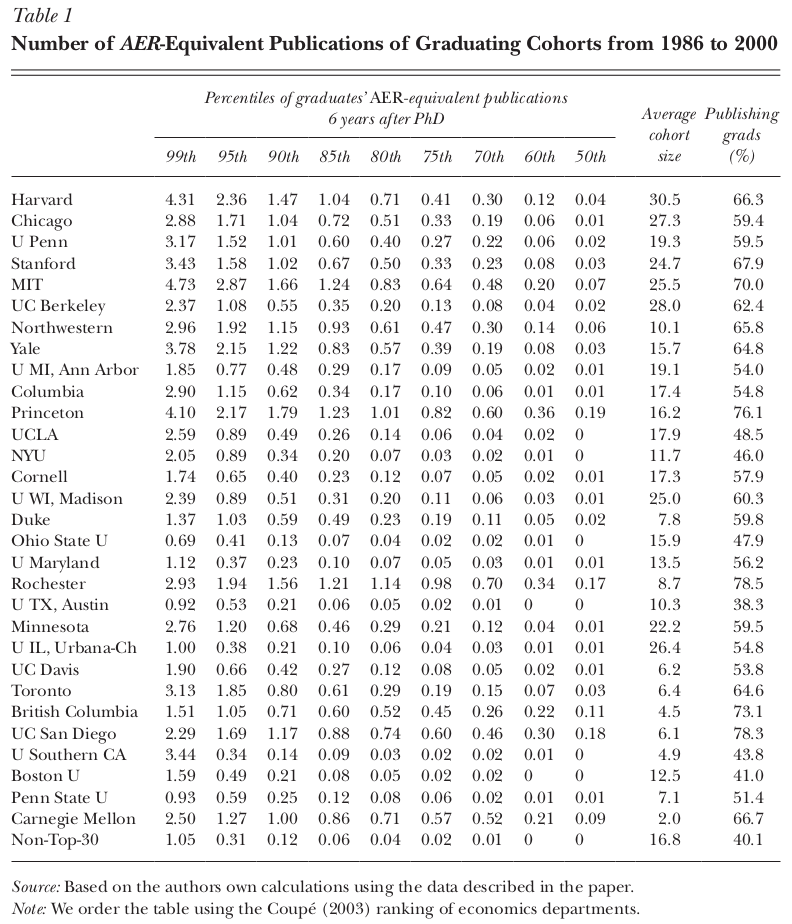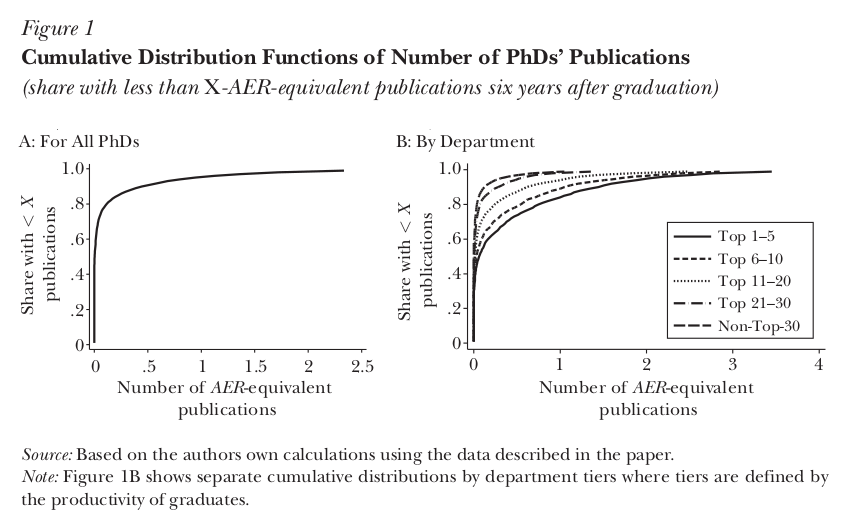- 1 What? How?
- 2 And?:ATTACH:
1 What? How?
Empirical study on the productivity of Economics PhD programs across ranking, measured by the number of graduates’ aer-equivalent publications after 6 years of PhD.
2 And?

Figure 1: Main results

Figure 2: Publications are extremely concentrated
If the objective of graduate training in top-ranked departments is to produce successful research economists, then these graduate programs are largely failing:
Table 1 reveals a rapid drop-off in research productivity of PhD graduates regardless of department as class rank decreases. At Harvard, for example, a student has to be in the 85th percentile or above to be likely to publish even a single aer paper in six years. The median Harvard graduate publishes only .04 aer papers. On the other hand, the 90th percentile of graduates of Carnegie Mellon or the University of California, San Diego, and the 80th percentile of Rochester graduates can also be expected to have one aer paper or more by year six. Going farther down this table, we see that a 95th percentile graduate of a typical non-top-30 department has a stronger publication record than the 70th percentile graduate of Harvard, Chicago, U Penn, Stanford, or Yale, or an 80th percentile graduate of Berkeley, Michigan, nyu, ucla, or Columbia.
This post is in the collection of my public reading notes.